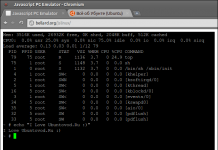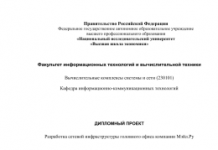The UK’s communications regulator, Ofcom, is increasing pressure on technology companies to address the “significant and widespread” abuse directed at women online. The move follows growing concern over harassment faced by women in public life, including athletes, politicians, and public figures. This isn’t just a matter of isolated incidents; it’s a systemic issue that threatens participation in sports, politics, and broader public discourse.
The Scale of the Problem
The issue is pervasive. Sport England Chairman Chris Boardman recently brought the matter to Ofcom’s attention following targeted abuse of the England women’s football team during Euro 2025. Parliament’s youngest female MP, Rosie Wrighting, has publicly described receiving gendered insults like “Barbie” and “stupid girl,” underscoring how such harassment deters women from entering politics.
This isn’t merely unpleasant; it’s a deterrent. Many women avoid public roles precisely because of the online hostility they face. The underlying trend is clear: unchecked abuse creates an environment where women are systematically discouraged from participating in public life.
Ofcom’s Guidance: A Call for Action
Ofcom’s guidance urges social media, dating, gaming, and pornography sites to take greater responsibility for user safety. The regulator argues that the digital world is “actively harming” women’s participation, not merely failing to protect them.
The proposed measures include:
- Prompts: Encouraging users to reconsider harmful posts before sending.
- Timeouts: Temporarily suspending abusive users.
- Rate Limiting: Restricting the number of comments or posts to prevent “pile-ons.”
- Bulk Blocking: Allowing users to quickly mute multiple abusive accounts.
- Improved Reporting: Simplifying abuse reporting tools.
- Hash-Matching: Automating detection and removal of non-consensual intimate images.
Voluntary vs. Mandatory: The Key Debate
While these recommendations are strong, they are currently not legally enforceable. Advocacy groups like Internet Matters and Refuge are calling for the government to make Ofcom’s guidance a statutory Code of Practice. The argument is straightforward: voluntary measures are insufficient. Without legal backing, tech firms may prioritize profit over safety, leaving women vulnerable.
Rachel Huggins, co-CEO of Internet Matters, stated that achieving the government’s goal of halving violence against women and girls requires mandatory compliance. Refuge echoed this sentiment, emphasizing that meaningful protection depends on companies actively implementing the guidance, or the government enforcing it.
Accountability and Future Action
Ofcom plans to publish a progress report in summer 2027, threatening stronger action if companies fail to improve. Dame Melanie Dawes, Ofcom’s chief executive, warned that no woman should fear expressing herself online or worry about being tracked by abusers.
Sports Minister Stephanie Peacock condemned the abuse aimed at sportswomen, urging tech companies to “step up and stamp it out.” Chris Boardman highlighted the “terrible offline impacts” of online toxicity, noting that fear of judgment already deters many women from exercising. The hard-won progress in women’s sports should not be undermined by misogyny.
The core message is clear: tech firms must prioritize women’s safety, and governments must hold them accountable. If voluntary action fails, legal enforcement is the only path to meaningful change.







































